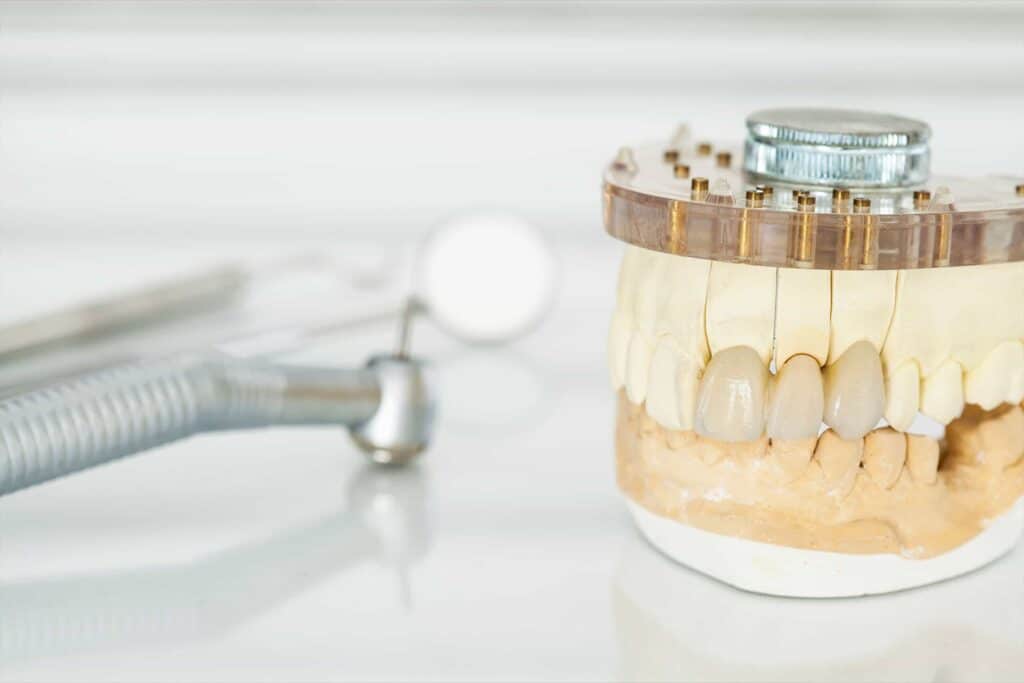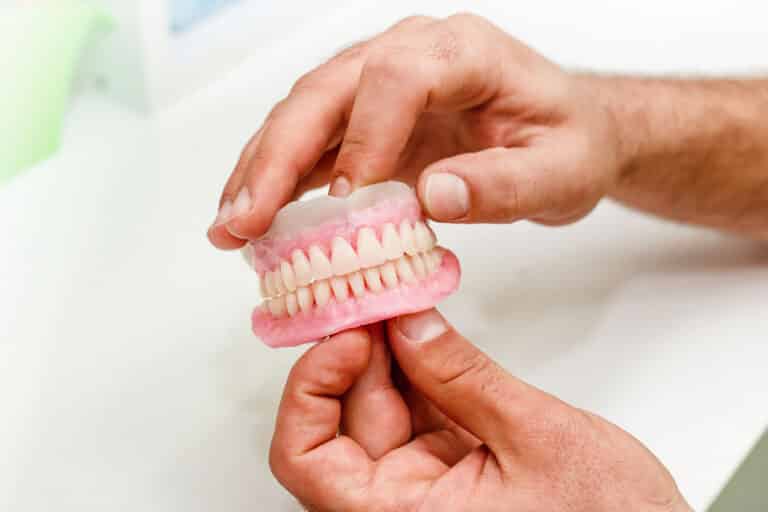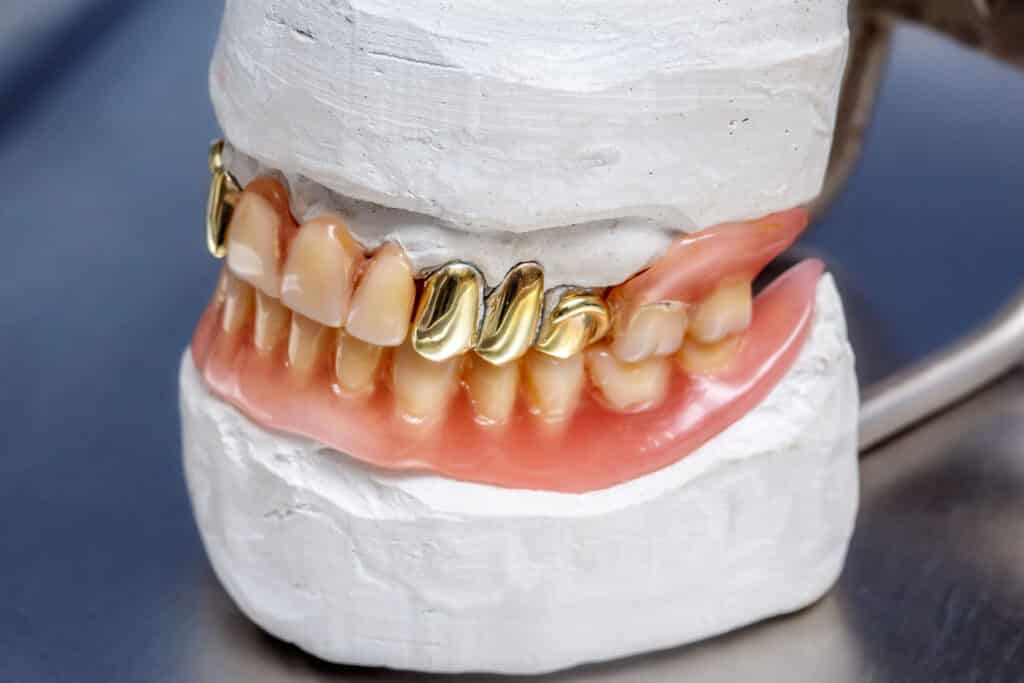If you’ve ever been to the dentist and sat in the waiting room, you’ve likely read your fair share of information regarding the potential treatments for periodontitis. Periodontitis is very common and highly treatable, but diagnosing it as early as possible is crucial.
Periodontitis is a severe gum infection that can potentially damage soft and hard tissue as well as affect the integrity of the jaw bone, resulting in tooth decay or loss. Due to diets high in sugar and a lack of emphasis on routine dental hygiene, periodontitis isn’t anything your dentist hasn’t seen before (and regularly), so if you’re embarrassed about seeking treatment, we encourage you to do so as soon as possible.
Understanding Periodontal Disease
Periodontal disease is often the result of poor dental hygiene. Periodontal diseases, such as periodontitis, stem from inflammation and infections in the gums and bones that support the teeth.
The early stages of periodontal disease are called gingivitis, where your gums may become red and swollen and bleed relatively easily. While you can take steps to slow the effects of advanced and untreated periodontal diseases, we cannot reverse them. Medications and non-surgical treatments may prove ineffective against very advanced cases of periodontal disease.
How Long Can You Keep Your Teeth if You Have Periodontitis?
Knowing how long you can keep your natural teeth after a periodontal disease diagnosis is a common question for those diagnosed. It’s important to note that the earlier you detect the signs of periodontal disease, the higher the chances are you can keep your teeth.
The condition is highly treatable and possibly reversible if your gum disease has not advanced. The earlier you seek care for periodontitis, the better off you’ll be regarding prognosis and treatment options. If you allow your condition to progress, you can trigger bone and tissue loss, making it nearly impossible to save your natural teeth.
The long term prognosis depends on the amount of bone loss that has already occurred, the amount of bone remaining, as well as daily hygiene that determines how long your teeth will last. Simply put, the more severe the disease and poorer the hygiene, the shorter the lifespan will be. Don’t fret though, as there are many instances where even in some severe cases of periodontal disease the teeth can last many decades.
How Do You Treat Periodontitis?
Treating periodontitis begins with an official diagnosis, which you cannot receive unless you visit your dental care provider. Your dentist will determine how far along your periodontitis is and which treatment options will work well for your individual situation.
It’s standard for your dentist to review your medical history, take x-rays, measure the depth of the pockets between your tooth and gum line, and examine your entire mouth. Once they finish the assessment, you can begin to discuss surgical and non-surgical procedures.
Non-Surgical Treatments
If your periodontitis is not too advanced or invasive, your dentist may recommend the following:
Scaling and Root Planing:: Scaling removes bacteria and tartar from the tooth surfaces via dental tools, lasers, or ultrasonic devices. Root Planing is the process of smoothing the roots of the teeth, which discourages and removes bacteria buildup and promotes gum healing.
Antibiotics: Your dentist may prescribe oral or local antibiotics to help control infection. Treatment with antibiotics alone will not be sufficient.
Lasers: There are some types of bone defects that may be treated using a laser.
Surgical Treatments
Those with advanced stages of periodontitis will require surgical intervention, including:
Bone Grafting: If the bone around your tooth is destroyed, your dentist may use donated, synthetic, or your own bone to hold the tooth in place and promote new bone growth.
Gum Grafting: When you lose gum tissue, it recedes. Dentists will cover the exposed root by removing part of your palate and placing it over the spaces where your gums have begun to recede.
Pocket Reduction Surgery: During this process, your dentist will reflect the gums back to expose the roots for effective cleaning and recontouring of the bone. Once you heal, it will be much easier to clean these areas.
Does Periodontitis Hurt?
Though some people may experience pain due to chronic inflammation and infection, for the most part, periodontitis is painless. However, this can make it harder to diagnose, so be vigilant regarding possible symptoms. Watch for swollen gums that bleed easily, chronic foul breath, and fast-receding gums.
Remember, periodontitis is a form of advanced gum disease. Although you cannot cure it, you can slow and reverse its effects. A timely diagnosis is an essential piece of this puzzle.
Can Your Reverse Periodontal Disease Naturally?
You cannot cure advanced periodontal disease naturally. However, some home remedies can treat the early stages, like gingivitis. Please note that these treatments should not take the place of routine oral care.
- Saltwater rinse
- Oil pulling
These are not professionally recommended remedies but could potentially soothe symptoms and clear away bacteria. If you suspect you have periodontal disease, even in the early stages, see your dentist right away. The sooner we catch the periodontal disease, the more positive the outcome!





